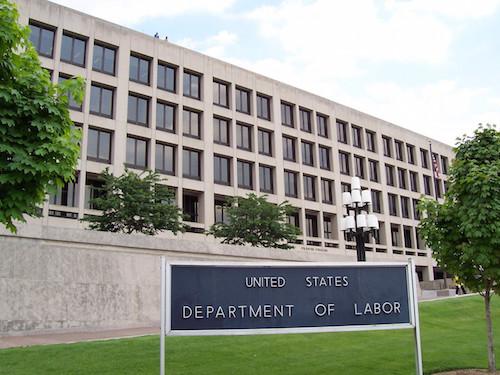A Secretary of Laborers, Not Unions

By Olivia Grady
President-elect Donald Trump has made sixteen Cabinet and Senior White House Official choices so far, including Betsy DeVos for Education Secretary, who teachers’ unions have strongly criticized for her support of School Choice.
One Cabinet post for whom the President-elect has not settled on a nominee is Secretary of Labor.
Given his excellent choice for Secretary of Education, the next Secretary of Labor will likely similarly promote policies that help workers, not labor bosses.
Some names discussed in media reports as contenders include Representative Lou Barletta (R-PA), CEO Andrew Puzder, and attorney Peter Kirsanow.
Congressman Lou Barletta has been a Republican Congressman for the 11th congressional district in Eastern Pennsylvania since 2011. He serves on the House Committee on Education and the Workforce, the House Transportation and Infrastructure Committee, and the House Homeland Security Committee.
Barletta first began his career in 1984 when he founded Interstate Road Marking Corporation, a pavement marking company. By 1989, the business had become the largest business in Pennsylvania of its kind, and it later became the 6th largest in the United States. His career in politics however started when he was elected to the Hazleton City Council in 1998 and later became Mayor of Hazelton, Pennsylvania, where he instituted a local ordinance banning illegal immigrants from working or renting homes in the city.
Andrew Puzder has been the president and chief executive officer of CKE Restaurants Holdings, Inc., the California parent company of Carl’s Jr., Hardee’s, Green Burrito, and Red Burrito since 2000.
Puzder first met the founder of Carl’s Jr., Carl Karcher, while practicing law in Missouri. Karcher asked Puzder to move to California and solve his serious financial problems, both of which Puzder did. He was able to save the business through a transaction with Fidelity National Financial CEO William Foley. Puzder then became Executive Vice President and General Counsel of Fidelity and later of CKE, before becoming CEO of CKE Restaurants.
He is currently affiliated with the American Enterprise Institute. He is also the co-author of Job Creation: How It Really Works and Why Government Doesn’t Understand It. He also was an Economic Adviser on both Governor Mitt Romney’s presidential campaign and President-elect Trump’s and authored the legislation upheld in the 1989 Supreme Court case, Webster v. Reproductive Health Services.
Puzder is most noted for his opinions on the minimum wage. He has written extensively about it in The Wall Street Journal, CNBC, Los Angeles Daily News and other publications. In a Wall Street Journal article, he wrote:
The president’s minimum-wage hike might cost 500,000 jobs, according to Congressional Budget Office estimates. But the pre-election push is mostly about safeguarding the jobs of a smaller group of people: congressional Democrats.
Peter Kirsanow is a partner in the Cleveland office of Benesch, Friedlander, Coplan & Aronoff LLP. He practices labor and employment law and is a member of the United States Commission on Civil Rights. He first served as labor counsel for the City of Cleveland and then senior labor counsel for Leaseway Transportation Corp. President George W. Bush later appointed Kirsanow to the U.S. Commission on Civil Rights in 2001, but Chairwoman Mary Frances Berry of the Commission fought the appointment in the courts all the way to the Supreme Court where she lost. President Bush later in 2006 appointed Kirsanow to the National Labor Relations Board (NLRB) where he served until 2008. He has testified before the Senate Judiciary Committee on the nominations of Supreme Court Justices, including Samuel Alito and Elena Kagan.
Whoever Trump chooses, the next Secretary of Labor will have a full agenda undoing the costly, harmful, and ineffective rules and regulations the Obama Administration’s Department of Labor has imposed. The House Appropriations Committee has proposed a reduced budget of $12 billion for the Department of Labor in 2017, and the agency will have over 17,000 employees.
That's a large ship to turn around, and it's going to require a strong captain.





